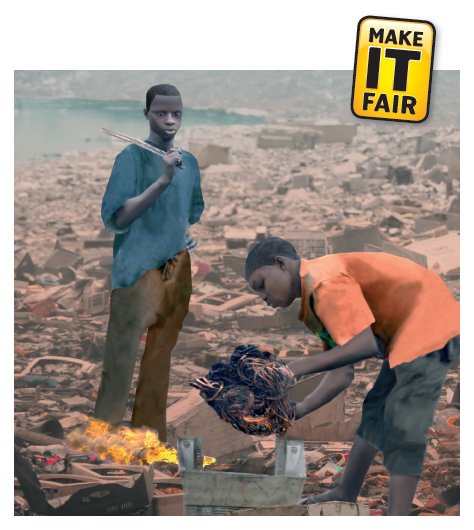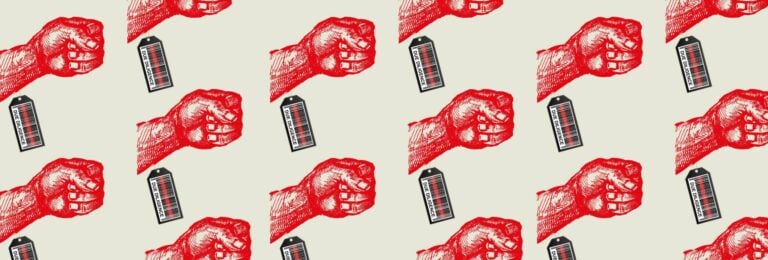
European e-waste damages health and environment in Ghana
The new report ‘What a waste’ from makeITfair reveals the health and environmental problems of the uncontrolled flow of e-waste from Europe to Ghana. Each month, around 600 containers of second-hand electronics arrive in Ghana. Most of it is obsolete and ends up being burned at dump-sites. The UK, Belgium, the Netherlands, Denmark, Italy and Spain are the top exporters of used computers to Ghana. As the European legislation on electronic waste (the so-called WEEE directive) is currently being revised, the Environmental Council of the European Union now has the opportunity to stop the human rights and environmental violations that are caused by European waste.
Electronics waste in industrialized countries is growing three times faster than regular waste – the result of the fast pace of technological innovation and the consequent short life of many electronic products.Up to 50 million tonnes of e-waste containing hazardous substances such as lead, cadmium and mercury are generated worldwide every year. A vast amount of the European e-waste is exported to developing countries such as Ghana, a major hub for European e-waste. This causes pollution and health problems because the country has no adequate infrastructure to deal with the hazardous waste.
For a small part of the population, the import of used electronics is a lucrative business, but for the majority of the people involved in the e-waste industry it is a matter of survival. Thousands of people are working in the informal waste industry in Ghana, where children constitute around 40% of scrap workers.
Studies show that health-damaging exposure to e-waste can result in long-term, often irreversible effects, such as infertility, miscarriage, tumors, endocrine diseases and birth defects. The workers often suffer from cuts, coughs, headaches, upper respiratory problems, rashes and burns.
Although the authorities in Ghana have been aware of the problem and its alarming scale for many years, little has been done to solve it. The only visible initiative is the City Waste Recycling scheme, but with only three employees it cannot compete with the informal scrap dealing industry.
The makeITfair project, the Basel Action Network (BAN), the European Environmental Bureau (EEB) and the GoodElectronics Network called on the Council to ensure that the current e-waste legislation, known as the WEEE Directive, is revised to stop these harmful practices. The NGOs say Europe needs greener and more resource-efficient design of electronic products with a longer life span. They are calling on the Council, which could make a decision in December, to ensure three main changes under the Recast of the WEEE Directive. First, to remove all recently proposed exceptions that will allow untested, used electronics to be considered non-waste. It should always be the responsibility of exporting countries to ensure that all equipment is fully functional prior to export. If not the material must be deemed as hazardous WEEE. Second, incentives must be provided to solve the e-waste problem most effectively at the source by including ambitious eco-design requirements in the Directive. Third, a WEEE fee structure should be established that differentiates costs in accordance with product properties.
Read the report What a waste
Related news
-
 The hidden human costs linked to global supply chains in ChinaPosted in category:News
The hidden human costs linked to global supply chains in ChinaPosted in category:News Joshua RosenzweigPublished on:
Joshua RosenzweigPublished on: -
 Major brands sourcing from China lack public policies on responsible exitPosted in category:News
Major brands sourcing from China lack public policies on responsible exitPosted in category:News Joshua RosenzweigPublished on:
Joshua RosenzweigPublished on: -


